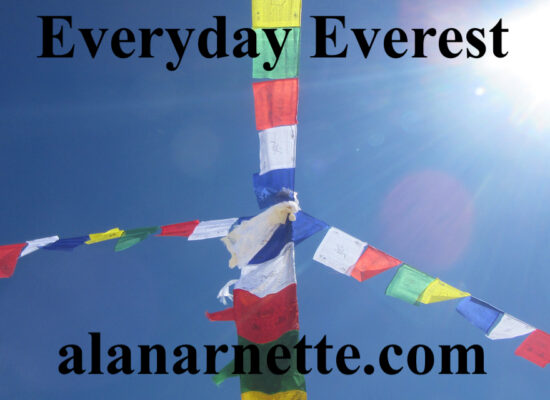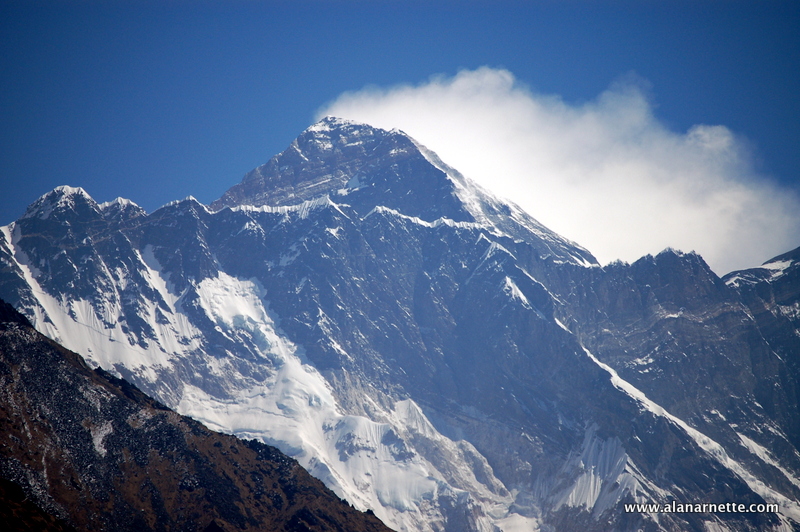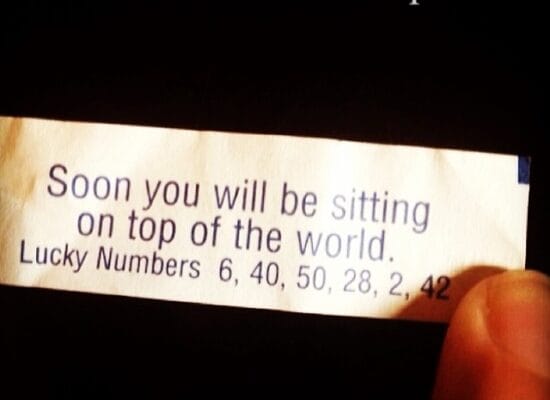Not everyone who attempts Everest, ed succeeds. And I should know! Last spring French climber Eugene Constant made an attempt with Russel Brice’s Himex team – complete with the Tigress Production cameras rolling for season three of Everest: Beyond the Limit.
Climbing Everest was his dream. He had trained for years, here even managed a delay of one full year after the Chinese pulled his team’s permit due to the Olympics conflict in 2008. He was determined to do his and to raise money for his cause.
However, Eugene called a halt to his climb. Often we focus on the summiters so I thought a visit with Eugene would represent a refreshing view from the other side of an Everest climb.
Q: Can you summarize how it felt to be on an Everest expedition?
First, I’d like to thank you Alan for the excellent work you perform each year on media coverage of Everest expeditions. It allows climbers to receive encouragement from supporters around the world. This support is very nice when you are at base camp.
Otherwise I am quite unable to summarize my feelings to be on Everest expedition. A dream came true for me last year. Living a thrilling adventure far away from French life with very interesting people was wonderful. Although I have not reached the summit, the weeks at high altitude was one of the greatest times of my life.
Q: Please tell us a little about your team and climbing with Himex?
I made contact in 2007 with Himex and after the cancellation of the expedition in 2008; our group has expanded in 2009. We were more than 25 climbers and a large number of nationalities, but we all had roughly the same goal: to climb Mount Everest!
I met interesting people during this trip and I gained new friends for life. I think of Megan Delehanty and Ellen Miller, Alec Turner, Lance Fox, Moises Nava and Norwegians Tomas and Tomy. I miss them very much.
Regarding Himex, I was delighted with my choice. The organization was perfect. Russell Brice is a serious man but he is also sensitive and understanding. Climbers enjoyed a great material comfort but also mentally, they are put in the possible conditions for a successful summit with the high level of security. The Himex Sherpa work is simply enormous and they did it with joy and devotion. Phurba Tashi, for example, is really impressive.
Q: You acclimatized on nearby Lobuche peak instead of the standard rotations through the Icefall. Other than the danger of the Icefall, do you think it was a good strategy?
In autumn 2008, when Himex, in agreement with its customers, has chosen to climb Nepalese side, Russell Brice proposed limiting the trips through the Icefall. This choice, which I immediately agreed is clearly a very good decision.
The ascent of Lobuche Peak helps a lot because you can take a breath outside Base Camp. You go down into the valley. It is also a very nice climb, which starts at 4900m, with an intermediate camp at 5200m and a beautiful ridge at 6100m. The view from the top is breathtaking: Everest, Lhotse, Makalu and Cho-Oyu in 360 °.
We climbed the peak twice. We slept at top during the second trip with a bonus sunset and sunrise forever in my memory. I also had the pleasure of climbing the summit with my mother. I’m sure you can imagine the emotion that was ours at the top.
Q: 2009 was a tough year for Icefall conditions. What was it like seeing all the avalanches from base camp?
First of all, the Icefall was always a problem for me and it was one of the reasons for which I had initially chosen to climb Everest by the north route, which contains fewer dangers. I cannot compare with previous years if a lot of avalanches fell on Icefall, I just had the memory of an avalanche from West Shoulder had breaking on camp I a few years ago.
Our various journeys on Lobuche peak and our base camp that looks at Pumori allowed us not to be face to face with Icefall, not to undergo it. When I climbed it for the first time, I was not more worried than before! Maybe, it was a mistake.
Q: You made the hard decision not to go through the Icefall after the avalanche that killed a Sherpa. What was your thought process on that decision?
In fact, I made the decision not to get through Icefall anymore before the avalanche, which killed this unfortunate Sherpa. During my acclimatization climb towards the camp III at 7400m, heading for camp I, I had a difficult day.
I was not feeling very well, weakened by a strong cough in previous week; I have to leave the rest of my team about 2/3 up the Icefall. The third part was a long and suffering walk and I am indebted to Shiraf who stayed with me.
I had accepted the dangers of Icefall: cracks and seracs. But this year, the route drawn by icefall doctors crossed very near the west shoulder which held an enormous cliff of seracs ready to collapse at any time. During 2 long hours, I was under this one without possibility of accelerating and taking away me from this danger.
Deprived, I became aware that I could not take this risk any more. I had promised to my wife and my children to return. I just finished my climb towards camp III and went down. The serac was always there but I knew it would collapse soon!
Q: I know your family is your priority. How did they feel about your decision?
We didn’t speak a lot about it. Nevertheless, I read their reassurance in their eyes when I returned. Mountains took my first guide, a cousin and my friend. I did not want to make my wife, a widow and my children, orphans. I owe it to be with them to help them and launch them in the life.
Q: A year later, how do you feel about your decision and any future plans to return to Everest?
On one year later, I do not regret my decision. The number of summit in our team surprised me, not that I considered they are weak but we were so many. This result demonstrates the quality of the work of Russell Brice and the quality of his Sherpas! I look forward to being able to look at the series Everest Beyond The Limit when it will be aired. I want to see my mates summiting big E.
The desire is big to return to mountain, in particular to the Alps. For the Everest, I think of returning to it one day when my children will be older and less dependent on me. The Himalayas fascinate me; I shall also like discovering Tibet, Karakoram and perhaps by climbing Cho-Oyu, Shisha or Gasherbrum. My ultimate ambition would be to climb one 8000m without oxygen …
Q: You were climbing to raise research money for Alzheimer’s. How is that going today?
In two years on my blog, I was able to collect funds for the benefit of France Alzheimer, association, which assists s and their families. I am happy to have, at my level, done something to fight this plague and especially to increase my family, my friends and of all those who followed me the awareness of Alzheimer’s disease and the problems it engenders for our western old countries. I am thinking how I can pursue this work.
Thank you Alan and I wish you to success.
Thanks Eugene. I am sure you will reach all the goals you set in life. You can read more about Eugene on his website.




One thought on “Interview with Eugene Constant: Turning Back from Everest”
It’s exciting to see expeditions that use their climb as a means to raise awareness for good causes. Thanks for sharing this interview in particular. Alzheimers has affected my extended family. Best wishes to Mr. Constant on his future endeavors.
Comments are closed.